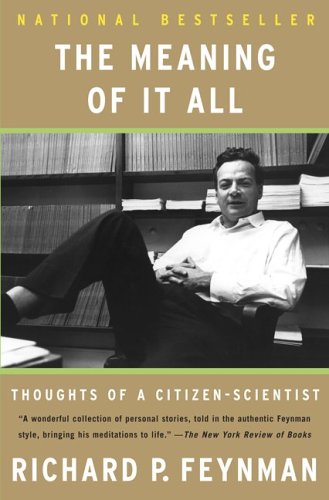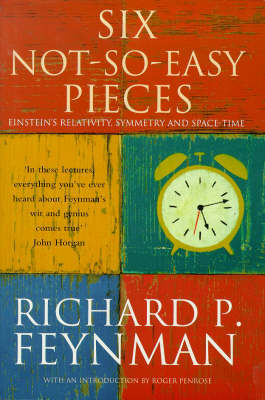Allen Lane Science S.
2 total works
In these remarkable lectures--never before published--the brilliant scientist reveals his thinking on life religion, politics, science, and everything in between.. Many appreciate Richard P. Feynmans contributions to twentieth-century physics, but few realize how engaged he was with the world around himhow deeply and thoughtfully he considered the religious, political, and social issues of his day. Now, a wonderful bookbased on a previously unpublished, three-part public lecture he gave at the University of Washington in 1963shows us this other side of Feynman, as he expounds on the inherent conflict between science and religion, peoples distrust of politicians, and our universal fascination with flying saucers, faith healing, and mental telepathy. Here we see Feynman in top form: nearly bursting into a Navajo war chant, then pressing for an overhaul of the English language (if you want to know why Johnny cant read, just look at the spelling of friend); and, finally, ruminating on the death of his first wife from tuberculosis. This is quintessential Feynmanreflective, amusing, and ever enlightening.
No twentieth-century American scientist is better known to a wider spectrum of people than Richard P. Feynman (1918-1988)--physicist, teacher, author, and cultural icon. His autobiographies and biographies have been read and enjoyed by millions of readers around the world, while his wit and eccentricities have made him the subject of TV specials and even a theatrical film.The spectacular reception of the book and audio versions of Feynman's Six Easy Pieces (published in 1995) resulted in a worldwide clamor for "More Feynman! More Feynman!" The outcome is these six additional lectures, drawn from the celebrated three-volume Lectures on Physics. Though slightly more challenging than the first six, these lectures are more focused, delving into the most revolutionary discovery in twentieth-century physics: Einstein's Theory of Relativity.No single breakthrough in twentieth-century physics (with the possible exception of quantum mechanics) changed our view of the world more than that of Einstein's discovery of relativity. The notions that the flow of time is not a constant, that the mass of an object depends on its velocity, and that the speed of light is a constant no matter what the motion of the observer, at first seemed shocking to scientists and laymen alike. But, as Feynman shows so clearly and so entertainingly in the lectures chosen for this volume, these crazy notions are no mere dry principles of physics, but are things of beauty and elegance. No one--not even Einstein himself--explained these difficult, anti-intuitive concepts more clearly, or with more verve and gusto, than Richard Feynman.

